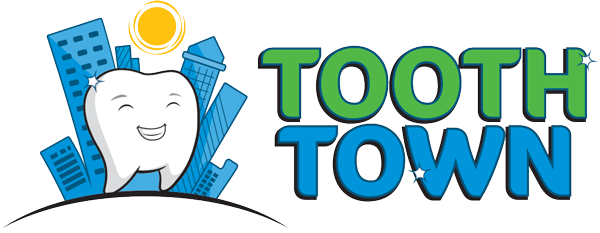Primary teeth, commonly called baby teeth, start forming way back in the womb. Sometimes they can appear as early as 3-4 months of age, but most commonly they start erupting through the gums around 6-12 months of age. The timing and order can vary, but all 20 primary teeth will usually erupt by the age of three.
Baby teeth have several important tasks:
- Help children chew food easily and properly
- Help children speak more quickly and clearly
- Hold space in the jaws for permanent teeth that are growing under the gums
- Set the habits for a lifetime of healthy mouth
Are baby teeth really that important? They fall out anyway, right?
Neglecting baby teeth can set a child up for lifelong dental problems. Whilst it can be tempting to skip tooth brushing when a toddler is over-tired and puts up a fuss, or allow a picky eater to snack on their favourite treat, this can lead to development of cavities.
Few people realise the importance of taking care of baby teeth. They are significant for child’s health and development, not only helping the child to eat and speak correctly, but also play a critical role in the healthy development and growth of their face. The space they maintain allows the correct room for their permanent teeth to erupt.
The health of baby teeth is also setting up the direction for the rest of the child life. Pre-schoolers, who have cavities in their baby teeth, are three times more likely than other preschool children to develop cavities in their permanent teeth. A 5-year-old’s dental health can even predict the risk of dental disease in adulthood.
The effects of dental decay
Just like adult teeth, baby teeth can develop cavities. Dental decay, or caries, is the single most common chronic childhood dental disease, being at least five times more common than asthma and hay fever. Due to the smaller size, cavities that develop in baby teeth can progress much quicker than in adult teeth.
Unfortunately, young children don’t have the language skills often required to complain of pain, and instead, can only express their symptoms in a change in behaviour. If left untreated long enough, this can lead to a life-threatening infection.
The statistics on Australian children’s oral health are alarming. The Australian Institute of Health and Welfare (AIHW) report – Oral health and dental care in Australia: Key facts, figures, trends 2014 findings include:
- More than half of all six-year-olds experience tooth decay in their baby teeth.
- Nearly half of all 12 year-olds have tooth decay.
- Over 22,500 children under 10 years of age were treated under general anaesthesia due to dental conditions.
Aside from the unsightly appearance of untreated dental decay, dental caries is an infectious disease. Even after the decayed tooth falls out or is removed, the bacterial infection, as well as the habits that perpetuate the infection, may continue in the child’s mouth. If left untreated, a decayed baby tooth can cause children to avoid certain foods, toothaches or even abscess, leading to an emergency situation.
Removing a decayed or abscessed tooth may resolve the toothache, but can cause other problems. There is a pattern of loss that primary teeth follow, to ensure the adult teeth come in the most favourable position. If one or more baby teeth are lost too early, it can delay or dramatically affect the position of adult teeth and braces may be needed to correct this. These baby teeth are place holders for adult teeth, and in their absence , adjacent teeth may drift into the space, blocking the future eruption of the permanent tooth. This may cause the need for space maintainers, or future orthodontic treatment.
Recommendations
The Australian Academy of Paediatrics (AAP) and Paediatric Dentistry (AAPD) both recommend that a child’s first dental exam should be six months after the first tooth comes in, or by the child’s first birthday. This is because healthy dental habits, from the start, will have a lasting impact on the child’s mouth and overall health. It’s much better to visit the dentist before there is a problem the teeth.
Early check-ups can also reveal any high-risk areas for cavity, and can establish a protocol to address these concerns before pain or infection arises. It can also provide insight into the growth and development of adult teeth that haven’t yet erupted, providing options to address them ahead of time.
